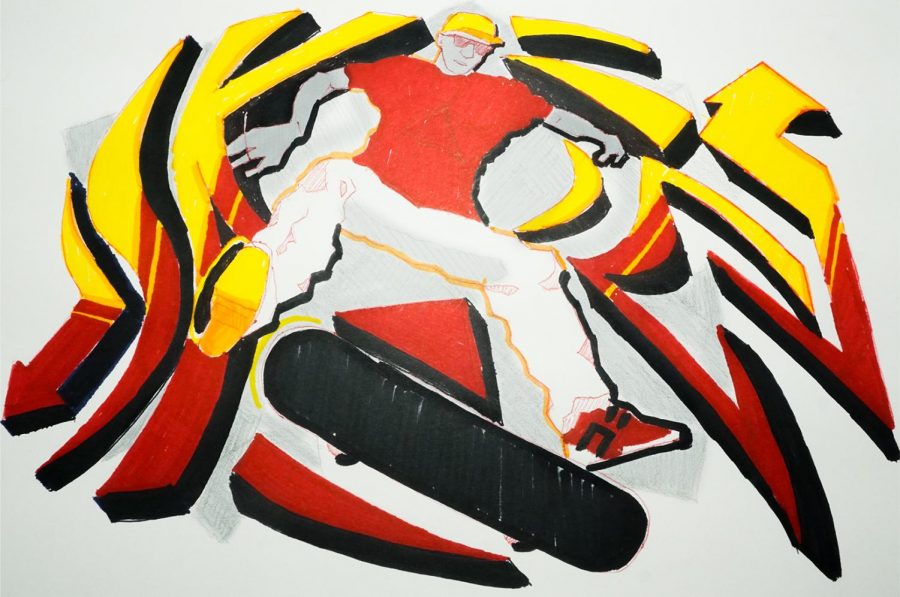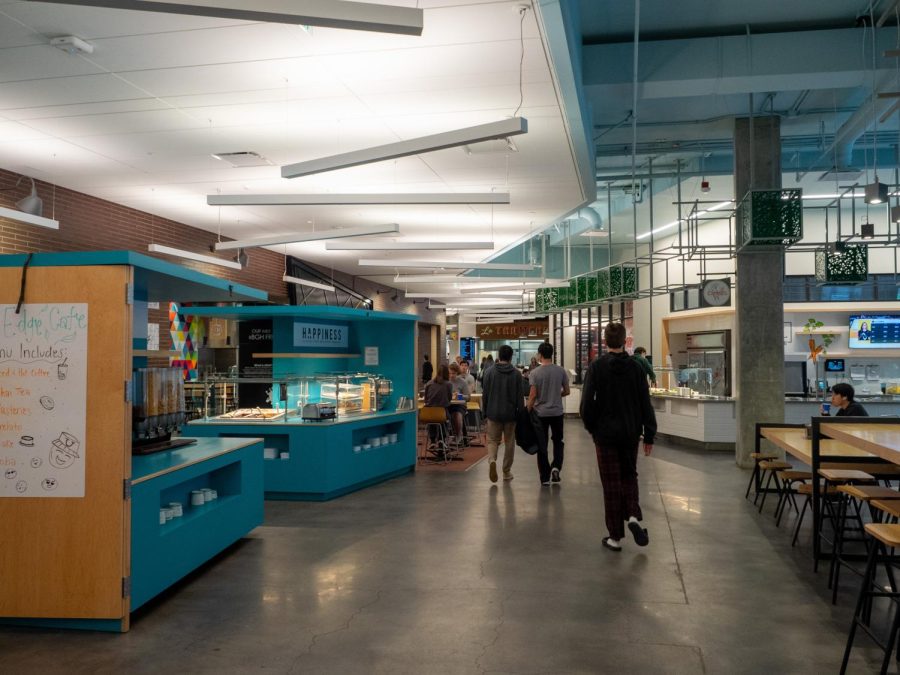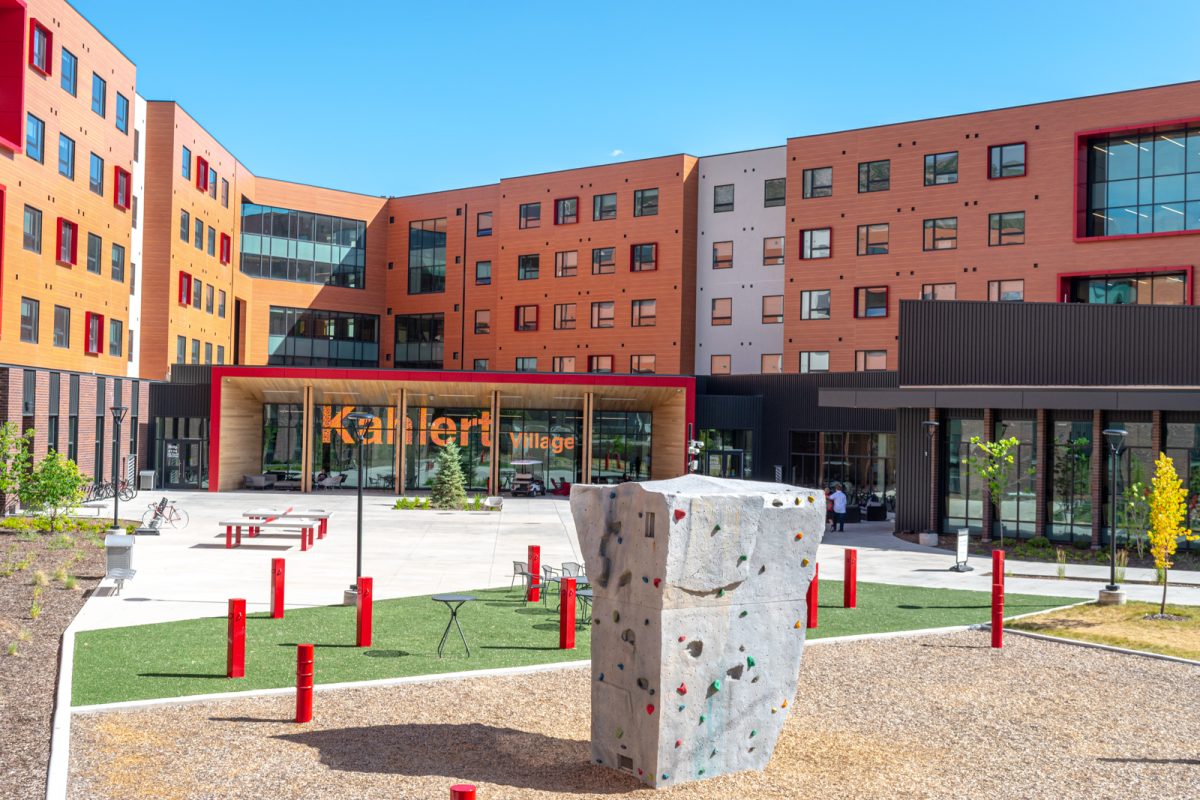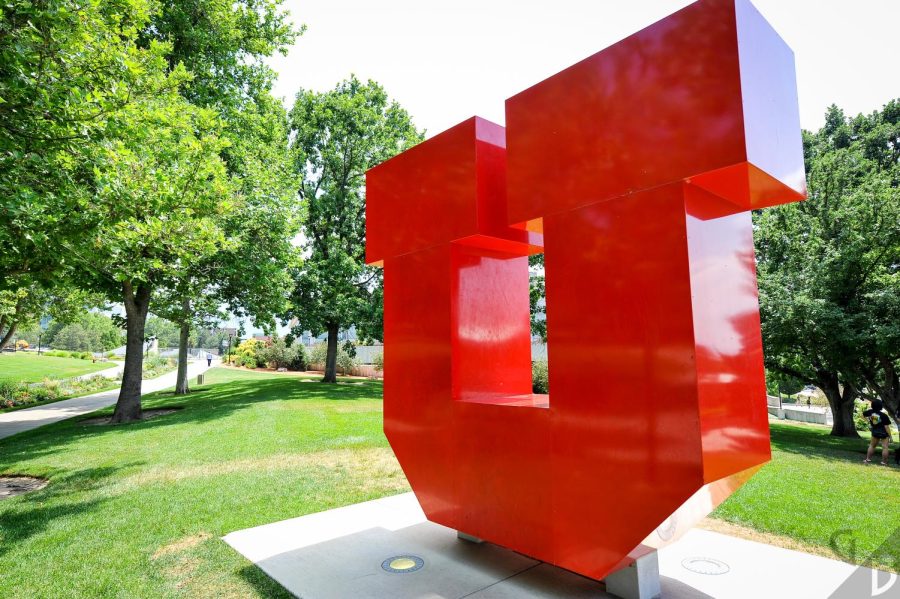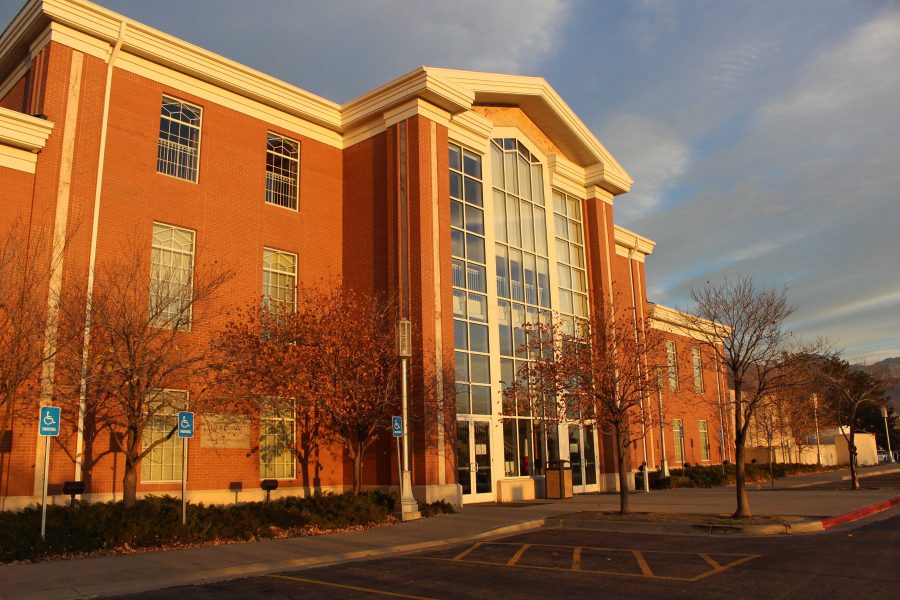Letter: Skateboarding In Salt Lake City
(Graphic by Cyan Larson | The Daily Utah Chronicle)
August 12, 2021
Last year, amid the struggles of COVID-19, I made the journey from Boulder, Colorado to Salt Lake City, Utah to start my freshman year of college. The activities at the University of Utah were limited due to COVID-19, so if you wanted to participate in activities with friends they were mainly outdoors.
I played volleyball and basketball at the courts and fields if it was permitted. But I spent the majority of my time skateboarding. I was able to skateboard to the few in-person classes I had. I skateboarded to a friend’s house and took the TRAX with my mask all the way back up to my dorm at the top of campus.
I had never really skateboarded until I got to Salt Lake City and now I’m deeply invested in getting better and learning more. Skateboarding is very difficult — it’s hard to learn and to get the equipment necessary to become good.
Aaron Kyro founded a company called Braille Skateboarding in 2007. He now has a YouTube channel with a massive social media following where he shares his message.
The majority of his videos consist of him going to skate parks around California in search of a kid who is experiencing poverty, struggling to get the equipment. He finds the kid with the worst skateboard, the worst wheels, the worst trucks and gives them a really good new skateboard so that they can excel at the sport they have passion for.
Over the summer I took a really interesting class called Leisure Behavior and Human Diversity. One company I studied, called Compassion, was similar to Braille Skateboarding. It helps kids in Honduras step away from gang violence, into a fun, community-organized game of soccer.
People like Kyro and Everett Swanson, Compassion’s founder, provide kids with new skateboard decks, new soccer balls and the ability to participate in leisure.
I have been to a bunch of skateparks around Salt Lake City after my newfound passion for skateboarding. And I have noticed that there are a lot of kids at the skate parks who have holes in their shoes and socks and horrible skateboard decks that are dangerous with splinters and sharp edges. I think that for decades skateboarding has been looked at as a degenerate, drug-involved activity. And I think that stereotype needs to be diminished: it’s time for skateboarding to be looked at as an activity that can create safe spaces for kids, especially those experiencing poverty, to develop happiness in their communities.
— Jackson Holicky, University of Utah student


